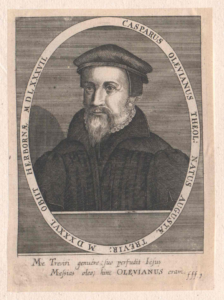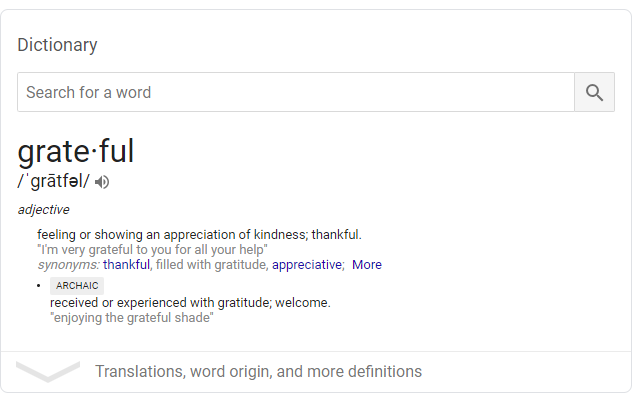What’s the Mission: Transformation or Reformation? (originally posted on Aquilla Report 12/17)

The effects of the covenant of works, requiring personal righteousness, explains the continued human strivings for perfectibility and utopia.
It’s the other half of the good news that Jesus fulfilled all righteousness under the law that too often gets left out of these churches….That news doesn’t fit in the natural categories of the unregenerate mind. However, if a human-based transformation is the mission then a message of alien righteousness really doesn’t fit the narrative. Yet a sense of something left undone or mandated for us to accomplish or complete by our own merits does.
The covenant of works established with Adam and all his offspring explains why the line “making the world a better place” or some variant pops up in just about every single high school or college graduation speech. It also explains why the goal of many churches who either deny or ignore the doctrinal implications of the covenant of works wind up proclaiming a sort of indistinct moralism of doing good in the world, or transformation of self or the world as the mission of the church.
The truth is that as Adam’s offspring, we’re all made for performance based approval, for works based righteousness. So while the secular world is busy proving their righteousness by virtue signaling or joining in on whatever political, social, or ecological movement is most popular this week, churches that emphasize transformation of either self or the world, often join right in. As a result, the mood in the church can roller-coaster up and down with the state of the secular world depending on how much we’re told that those issues are the latest crisis.
I’m not trying to diminish the seriousness of any of the things in this fallen and broken world that Christians might feel called by God in which to be engaged. But what I am asking is why there seems to be a sort of addiction to a cult of righteousness. There are a lot of assumptions today, both on the left and right that “my positions are not only right, they’re righteous,” and hence they are unassailable. Discussions, reasoning with each other, we’re past all of that, because my position is for good (“righteous”), those that oppose my positions are for evil (“unrighteous”). This is the view now, both inside and out of the church.
I suggest that the fact that people (both secular and within the church) hold to views as morally unassailable, which either absolves them of guilt, or deems them as righteous, makes sense. This state of the culture is not really an accident, but a carefully crafted, focus-grouped, sociological manipulation. It’s a sort of politically inspired weaponization of human nature, of the desire of all of Adam’s offspring to be declared righteous, to be declared good and approved of. This is what Adam was made for, what John Calvin (1509-1564) called “obedientiae examen,” (a trial of obedience). “God’s promise of eternal life as long as he should eat of the tree of life, and on the other hand fearful denunciation of death the moment he should taste of the Tree of the Knowledge of good and evil.” [a]
This is the covenant of works, on which we find a requirement of personal righteousness.
In Reformed history, this covenant of works has also been called the covenant of life[b], or the covenant of nature [c]. Zacharius Ursinus (1534-83) co-author of the Heidelberg Catechism in his Larger Catechism Question 36. said of the difference between Law and Gospel is that:
“The law contains a covenant of nature begun by God with men in creation, that is, it is a natural sign to men, and it requires of us perfect obedience toward God. It promises eternal life to those keeping it, and threatens eternal punishment to those not keeping it. In fact, the gospel contains a covenant of grace, that is, one known not at all under nature. This covenant declares to us fulfillment of its righteousness in Christ, which the law requires, and our restoration through Christ’s Spirit. To those who believe in him, it freely promises eternal life for Christ’s sake.” [c]
Contrasting the covenant of works (nature), and Christ fulfilling it in order to save us in the covenant of grace through faith alone, Herman Bavinck (1854-1921) explains why it is also called a covenant of nature:
“It was called the covenant of nature not as if it sprung, of itself and naturally, from God’s nature or that of man. Rather, it was called that because the foundation on which it rested, that is, the moral law, was known by man in nature” [d] In other words, the law of God is natural law, which is as Calvin teaches “that conscience which God has engraved upon the minds of men.” [e]
It’s this natural law, written on the conscience of all men, which the Westminster Confession of Faith declares binds all of Adam’s offspring to “personal, entire, exact and perpetual obedience.” It’s this natural conscience, and a demand for righteousness that all mankind is trying to answer, and which is only truly answerable by the good news that Christ fulfills all righteousness on our behalf and imputes his righteousness to us who believe. Apart from that relief unregenerate man will seek to fill that demand of God for a positive righteousness with things he does, and so will Christians.
This is where we see the common nature of all mankind and the desire at the core of our being to be declared just, to be declared righteous. This is why many of today’s secular movements, even those opposed to nature itself, don’t just demand tolerance but also validation and approval for their views.
This is why churches committed to “making the world a better place” and world transformation find common support with unbelievers also committed to societal transformation. It’s also why the issue-of-the-day in some churches is often the same issue making its rounds in the secular news. Their goal is also transformation, albeit through political means. So we find Reformed churches in a sort of unspoken partnership with the world in what is just, what is righteous, what is significant and therefore what “the mission” is.
I’m not saying that these issues are not just, or unjust, or right or wrong, but that it seems like the church is confusing or mixing the great commandment, to love God and neighbor (law), with the great commission (gospel).
There should always be a distinction between law and gospel, and yet as the covenant of works is either denied or ignored in transformation focused churches, the gospel gets mixed and distorted. Phrases like “living out the gospel” where the good news is something we (the new humanity) do or manifest to the world, fits right in lock step with that old Adam in us. We sense that there’s something undone that we need to complete.
I’m not going to address Reformed Christians who think that there is some sort of mandate for Christians to fulfill, but what I am saying is that in our culture today, that mission seems to put today’s Christians in lock step with natural man with a common mission for the world. It also has a tendency to fill churches with unbelievers who find the sort of confident moral clarity of making the world a better place as mission, to be attractive. Love your neighbor as mission, and sprinkle a few “Jesus died for your sins” in there and you find a real sense of fellowship among Adam’s offspring, regenerate and unregenerate.
It’s the other half of the good news that Jesus fulfilled all righteousness under the law that too often gets left out of these churches. The part that Ursinus stated was not known by nature [c]. That news doesn’t fit in the natural categories of the unregenerate mind. This foreign announcement of an alien righteousness, given as a free gift, is too often not proclaimed in Reformed churches as part of the good news. Because if a human-based transformation is the mission then a message of alien righteousness really doesn’t fit the narrative. Yet a sense of something left undone or mandated for us to accomplish or complete by our own merits does. Under that narrative the sense that we, by our own commitment to obedience and taking our Christian duties seriously are to be filling in our part.
Without a righteousness under the law found in the covenant of works fulfilled by Christ, there is little underlying basis for the doctrine of imputed righteousness. It becomes more of an ungrounded and empty phrase. As I listen to sermons coming from some Reformed and Presbyterian churches, when they even proclaim the gospel of what God has done for us in Christ, there is a sort of assumed sufficiency found in proclaiming Christ’s passive obedience, and his active obedience is not proclaimed as part of the good news at all.
This is a sad state of many Reformed churches. That while they deny the errors of Federal Vision theology or New Perspective of Paul theology on paper, functionally they have absorbed the same error as them with regard to Christ’s active obedience. Meredith Kline (1922-2007) pointed out the fruit of those diminishing or denying doctrine of Christ’s active obedience having fulfilled what Adam should have, when he wrote:
“There is simply no room in their system for a divine justice functioning positively in reward of obedience, no room for an accomplishment of righteousness by anybody that might be imputed to somebody else. The resultant tendency is to confuse justification and sanctification in a new legalism in which the role of good works, which was not permitted entrance through the front door, now sneaks in the back door. What Christ could not do is left for us to do, somehow.” [f]
This view of the gospel, that at least functionally denies the fulfillment of righteousness, seems to make a type of Christianity that is much more compatible with natural man. As a result, we see how well the emphasis in Reformed churches on transformation agrees so well with culture’s transformation movements: what is righteous and just, and therefore determines the nature of “the mission.”
The Reformed church must return to proclaiming what the Westminster Confession of Faith calls Christ’s “obedience and satisfaction”[g]. It is both his active and passive obedience that justifies us, and so a faithful pastor must continually proclaim to the believer that he is to rest in Christ’s righteousness. This is a foreign announcement of an alien righteousness. The unregenerate cannot and will not rest in Christ righteousness on their own; but this is the good news that must be continually preached in the church. If this isn’t preached we will continually go back to what is natural to us; that is, a belief that Christ might have died for my sins, but I’ve got to do something, too; I’ve got to do my part. This is a form of Arminianism on the other side of the cross. The cure for it is a proclamation of a gospel that focuses on the imputed righteousness of Christ.
As the Great Awakening preacher, George Whitfield (1714-1770), proclaimed:
“Never was there a reformation brought about in the church, but by the preaching the doctrine of an imputed righteousness. This, as the man of God, Luther, calls it, is ‘Artienlus statntis out cedentis Eichlesin,’ the article by which the Church stands or falls.”[h]
Isn’t this really what a theologically Reformed church should be about, that we are not “transformers,” but “reformers”? If you are Reformed, then proclaim imputed righteousness. Include it in your gospel! Proclaim what God has done in Christ, in history to save sinners like you. Proclaim what both Luther and Calvin called that marvelous exchange of our sin to Christ, and his righteousness to us. This is the only good news. As we center on this truth, and fix the eyes of our members on this truth, it will free them to live a life of gratitude.
[a] John Calvin, Institutes of the Christian Religion 2.1.4
[b] Westminster Larger Catechism Q. 20
[c] Zacharias Ursinus, Larger Catechism Q. 36
[d] Herman Bavinck,
Gereformeerde Dogmatiek, II. 528-29
[e] John Calvin, Institutes of the Christian Religion 4.20.16
[f] Meredith G. Kline, Covenant Theology under Attack,
https://www.opc.org/new_horizons/Kline_cov_theo.html
[g] Westminster Confession of Faith 11.3
[h] George Whitfield,
The Lord our Righteousness,
http://www.biblebb.com/files/whitefield/gw014.htm


 based on performance, and internally it would crush them to admit that they’re a failure. The internal lawyer that accuses them is so strong that to give in and admit that the lawyer is right is a horror that they simply cannot face. If these people are Christians, they have not been taught, or they refuse to give up what they “bring to the table” and simply rest in Christ’s righteousness for them. Theirs is a type of treadmill Christianity where Christ forgives them, but they’re looking to sanctification to be a place to silence the lawyer. Often comparing themselves with others becomes the standard.
based on performance, and internally it would crush them to admit that they’re a failure. The internal lawyer that accuses them is so strong that to give in and admit that the lawyer is right is a horror that they simply cannot face. If these people are Christians, they have not been taught, or they refuse to give up what they “bring to the table” and simply rest in Christ’s righteousness for them. Theirs is a type of treadmill Christianity where Christ forgives them, but they’re looking to sanctification to be a place to silence the lawyer. Often comparing themselves with others becomes the standard. It is through the explaining of doctrine, (that is the normal means of the preaching of the word of God) particularly this gospel articulated, that God uses so by His Spirit grant us faith so that we trust in Christ. So, this same gospel that justifies us is to continue to be examined and explained each week in all its’ glorious detail so that we are built up in Christ, and our faith is strengthened and grows. That is why Historic Reformed piety is church centered, and particularly the “means of grace” centered, which is word and sacrament. Word (law and gospel, and particularly gospel) and sacrament, and then as we in the covenant community of faith have children, we baptize them and we moms and dads catechize them (teach them the faith) as they are covenant members of the Christ confessing community of believers.
It is through the explaining of doctrine, (that is the normal means of the preaching of the word of God) particularly this gospel articulated, that God uses so by His Spirit grant us faith so that we trust in Christ. So, this same gospel that justifies us is to continue to be examined and explained each week in all its’ glorious detail so that we are built up in Christ, and our faith is strengthened and grows. That is why Historic Reformed piety is church centered, and particularly the “means of grace” centered, which is word and sacrament. Word (law and gospel, and particularly gospel) and sacrament, and then as we in the covenant community of faith have children, we baptize them and we moms and dads catechize them (teach them the faith) as they are covenant members of the Christ confessing community of believers.
 is no such thing as a covenant of works, or a works righteousness principle. And just because there is a covenant of works doesn’t mean that anyone other than Adam or Christ could have kept it. And just because only Christ could and did keep it doesn’t mean that it’s still not in place today, and that the natural inclination of the human heart (both unregenerate and regenerate) is towards works based righteousness. We’ve all got the moral law at work in us, and we’re all inclined to try and be something, or be righteous, or be approved by someone or by some standard associated with that law at work in our consciences.
is no such thing as a covenant of works, or a works righteousness principle. And just because there is a covenant of works doesn’t mean that anyone other than Adam or Christ could have kept it. And just because only Christ could and did keep it doesn’t mean that it’s still not in place today, and that the natural inclination of the human heart (both unregenerate and regenerate) is towards works based righteousness. We’ve all got the moral law at work in us, and we’re all inclined to try and be something, or be righteous, or be approved by someone or by some standard associated with that law at work in our consciences.




